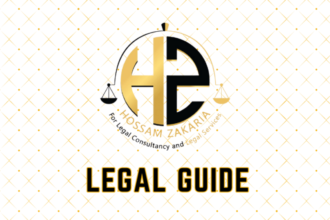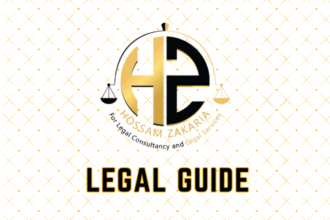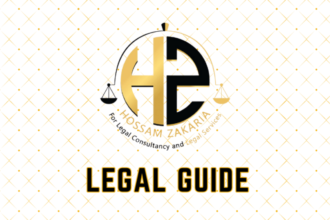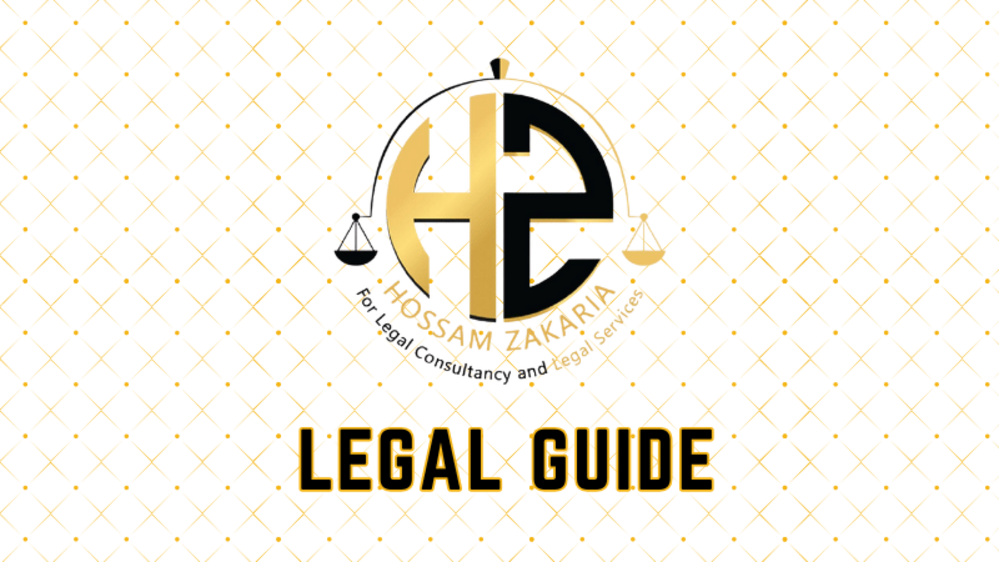Introduction: The Critical Role of Islamic Banking Governance and Compliance in the UAE
The United Arab Emirates stands as a global leader in Islamic finance, with Dubai and Abu Dhabi positioning themselves as major hubs for Sharia-compliant banking. As the regulatory landscape evolves, particularly with updates extending into 2025, it is imperative for financial institutions, corporate executives, compliance officers, and legal advisors to master the intricacies of Islamic banking governance. The significance of robust compliance extends beyond legal obligations—it anchors market trust, attracts international investments, and safeguards reputational integrity in a region where adherence to Islamic principles is paramount. This comprehensive analysis addresses pressing legal updates, explores regulatory requirements, and provides actionable guidance for navigating the sophisticated world of Islamic banking in the UAE. Drawing from authoritative sources such as the UAE Central Bank, recent Cabinet Resolutions, and standards issued by bodies like the Higher Sharia Authority, this resource is meticulously tailored to meet the consultancy-grade expectations of our clients.
Table of Contents
- Understanding the Legal Framework for Islamic Banking in the UAE
- Key Regulatory Authorities and Their Mandates
- Core Governance Standards and Sharia Compliance Requirements
- Recent UAE Law Updates: Federal Decrees and Central Bank Circulars (2024–2025)
- Practical Application and Common Challenges in Compliance
- Comparing Old and New Legal Frameworks: Navigating Changes
- Case Studies: Compliance Implications for UAE Banks
- Risks of Non-Compliance and Effective Risk Mitigation Strategies
- Organizational Compliance Checklist
- Conclusion: Shaping the Future of Islamic Banking in the UAE
Understanding the Legal Framework for Islamic Banking in the UAE
Origins and Fundamental Legal Instruments
Islamic banking in the UAE is rooted in the overarching framework of Federal Law No. 6 of 1985 regarding Islamic Banks, Financial Institutions and Investment Companies. This law remains the bedrock for Sharia-compliant finance, complemented by subsequent regulatory instruments such as the UAE Central Bank Law (Federal Decree Law No. 14 of 2018 Regarding the Central Bank and Organization of Financial Institutions and Activities), which was further updated by Federal Decree-Law No. 25 of 2020. These legal provisions set out clear guidance for the establishment, governance, and operation of Islamic financial entities.
The Role of Sharia Law
Islamic banking is distinguished by the absolute requirement for Sharia compliance in all operations. Article 2 of Federal Law No. 6 of 1985 stipulates that Islamic financial institutions must ensure their business practices—and the instruments they deploy—conform with the laws and principles of Islamic jurisprudence (fiqh al muamalat).
Key Regulatory Authorities and Their Mandates
Central Bank of the UAE
The Central Bank plays an overarching regulatory function under Federal Decree Law No. 14 of 2018 and its amendments. Its responsibilities encompass licensing, supervision, prudential regulation, and enforcement. Recent Central Bank Circulars and Regulatory Frameworks, particularly those issued in 2024 and 2025, place increased emphasis on governance, risk management, and internal controls specific to Islamic banks.
Higher Sharia Authority (HSA)
Established in 2018, the Higher Sharia Authority (HSA) is the apex body responsible for defining and standardizing Sharia compliance across all licensed financial institutions. Pursuant to Central Bank Board of Directors’ Resolution No. 18 of 2018, the HSA issues binding fatwas, guidelines, and oversight mandates to ensure regulatory harmonization.
Other Stakeholders
Additional oversight is provided by the Securities and Commodities Authority (for capital market instruments) and the UAE Ministry of Justice (on dispute resolution and regulatory enforcement).
Core Governance Standards and Sharia Compliance Requirements
Corporate Governance in Islamic Banks
Corporate governance in Islamic banking extends beyond conventional risk management, embedding Sharia compliance as a central pillar. Key components mandated by Central Bank Regulation (2020) include:
- Sharia Supervisory Boards: Every Islamic bank is required to appoint an independent Sharia Supervisory Board (SSB) responsible for ensuring end-to-end compliance with Sharia standards and for advising on products, transactions, and structures.
- Internal Sharia Audit: A specialist audit function is required to monitor Sharia compliance at all organizational levels, report deviations, and ensure continuous improvement in processes and risk controls.
- Ethics and Integrity: Governance codes require that ethical conduct and transparency are integral elements, supporting customer trust and regulatory confidence.
These standards reflect global developments championed by institutions such as the Accounting and Auditing Organization for Islamic Financial Institutions (AAOIFI).
Mandatory Sharia Governance Framework
The Central Bank’s Sharia Governance Framework, updated via circulars in late 2024 and early 2025, incorporates:
- Appointment procedures for qualified Sharia scholars.
- Detailed requirements for SSB independence and conflict-of-interest avoidance.
- Comprehensive documentation obligations for Sharia rulings (fatwas) and their implementation.
- Risk identification and escalation systems for potential Sharia non-compliance.
- Annual Sharia compliance reports, mandated by law for disclosure to both the Central Bank and shareholders.
Visual suggestion: Diagram illustrating the structure of an Islamic bank’s Sharia governance ecosystem, including the Board of Directors, SSB, internal Sharia auditors, and compliance units.
Recent UAE Law Updates: Federal Decrees and Central Bank Circulars (2024–2025)
Key Developments in 2024–2025
Significant changes have been ushered in through:
- Federal Decree Law No. 9 of 2024 (on Financial Institutions): This landmark update streamlines licensing criteria, enhances Sharia audit requirements, and introduces stricter penalties for non-compliance.
- Central Bank Circular No. 1/2025: Implements enhanced disclosure norms for Islamic banks, standardizes external Sharia audits, and mandates real-time reporting on Sharia breaches.
- Cabinet Resolution No. 20 of 2024: Launches a centralized Sharia compliance database and cross-institutional reporting framework, enabling transparency across the sector.
Legal practitioners must track such advancements via the Federal Legal Gazette and direct regulatory bulletins from the UAE Central Bank.
Table: Old versus New Compliance Frameworks
| Requirement | Pre-2024 Framework | 2024–2025 Updates |
|---|---|---|
| Sharia Supervisory Board | Appointment recommended | Independent SSB mandatory, with defined appointment criteria |
| Sharia Audit | Annual, internal, varied by institution | External audits standardized, annual disclosure to Central Bank required |
| Disclosure | Basic annual reporting | Real-time reporting, enhanced public and regulatory disclosure |
| Non-compliance Penalties | Limited, primarily advisory | Substantial administrative fines and supervisory sanctions |
Practical Application and Common Challenges in Compliance
Operationalizing Governance Requirements
Implementing these evolving governance standards entails significant operational changes. Key challenges encountered include:
- Board Expertise: Sourcing suitably qualified Sharia scholars, and resolving potential conflicts of interest among board members who serve at multiple institutions.
- Process Integration: Aligning IT, documentation, and process flows to seamlessly embed Sharia compliance within all business lines.
- Cross-Border Complexities: Navigating differences in local versus international Sharia interpretations, particularly when syndicating Islamic finance deals with global partners.
- Resource Constraints: Smaller banks facing cost pressures to implement robust internal Sharia audit functions.
Legal consultancy can address these through tailored compliance training, technology enablement, and advisory on board structuring.
Comparing Old and New Legal Frameworks: Navigating Changes
Detailed Analysis of Key Regulatory Shifts
The regulatory landscape for Islamic banking in the UAE is dynamic; familiarity with recent transitions is vital:
| Aspect | Old Framework | 2024–2025 Legal Shift |
|---|---|---|
| Licensing Criteria | General financial capability | Specific Islamic finance expertise required |
| Sharia Governance Reporting | Internal to Board only | Filed with Central Bank and disclosed publicly |
| Sharia Compliance Risks | Self-monitored | Mandatory escalation protocols, real-time notification of breaches |
| Penalties for Breaches | Minor, institution-determined | Standardized sanctions and public reprimands by Central Bank |
| Transparency Obligations | Institution’s discretion | Annual public reporting enforced by Cabinet Resolution No. 20 of 2024 |
Visual suggestion: A flow diagram showing escalation of Sharia non-compliance from discovery to Board notification, regulatory filing, and public disclosure.
Case Studies: Compliance Implications for UAE Banks
Case Study 1: Addressing a Sharia Breach in Credit Products
Scenario: An Islamic bank inadvertently approved a product structure with elements of riba (interest).
Legal Impact: Under the 2025 updates, real-time notification to the Central Bank is mandatory, and the bank must present remedial action within 30 days. Failure invokes regulatory fines in accordance with Federal Decree Law No. 9 of 2024.
Practical Insight: Effective detection relies on integrated technology and rapid escalation protocols, reducing reputational and financial risks.
Case Study 2: Cross-Border Sukuk Issuance
Scenario: A UAE-based Islamic bank partners with a Malaysian entity to issue an international Sukuk (Islamic bond).
Legal Impact: With conflicting Sharia interpretations, the Higher Sharia Authority steps in, providing standardized UAE guidance that overrules institution-specific opinions as per Central Bank Resolution 18 of 2018.
Practical Insight: Legal teams must pre-negotiate applicable Sharia standards in cross-jurisdictional deals, reflecting the growing global influence of the UAE’s regulatory vision.
Risks of Non-Compliance and Effective Risk Mitigation Strategies
Consequences of Non-Compliance
- Financial Penalties: Administrative fines under Federal Decree Law No. 9 of 2024 can reach millions of dirhams for repeated or willful breaches (refer to the Federal Legal Gazette for specifics).
- Regulatory Sanctions: Suspension or revocation of licenses, public reprimands, and appointment of external administrators.
- Reputational Harm: Negative publicity and loss of stakeholder trust can jeopardize market share and future growth prospects.
- Contractual Voidance: Sharia non-compliant transactions may be deemed void, impacting enforceability and asset recoverability.
Risk Mitigation Strategies
- Establishing robust internal Sharia audit and real-time compliance monitoring tools.
- Training programs for staff at all levels, emphasizing both legal and operational risks.
- Prompt escalation and remediation protocols embedded within company procedures.
- Periodic external SSB reviews with well-documented outcomes.
- Comprehensive documentation and proactive engagement with regulators.
Visual suggestion: Compliance checklist table summarizing mandatory actions and their legal bases under UAE law.
Organizational Compliance Checklist
| Compliance Requirement | Reference Regulation | Best Practice |
|---|---|---|
| Independent SSB Appointment | Central Bank Regulation (2020); Decree Law No. 9/2024 | Engage experienced scholars, rotate members periodically |
| Sharia Audit Function | Central Bank Circular 1/2025 | Integrate audit with IT, ensure annual external review |
| Real-Time Reporting | Cabinet Resolution 20/2024 | Implement automated breach notifications |
| Training and Awareness | Central Bank regulations | Annual compliance workshops and onboarding modules |
| Public Disclosure | Decree Law No. 9/2024 | Annual Sharia compliance report published on website |
Conclusion: Shaping the Future of Islamic Banking in the UAE
The trajectory of Islamic banking regulation in the UAE reflects a commitment to excellence, transparency, and global leadership. Recent legal updates—driven by Federal Decrees, Central Bank circulars, and Cabinet Resolutions—demand a proactive, organization-wide embrace of best practices in Sharia governance. Banks, financial institutions, and their advisors must prioritize continuous learning, technology-driven compliance, and robust internal controls to remain ahead of the ever-evolving regulatory curve. Looking forward, these developments will not only protect stakeholders but also position the UAE as a resilient, innovative hub for Islamic finance in the global marketplace.
Best Practices for Ongoing Compliance:
- Embed Sharia compliance into core strategy at Board and operational level.
- Engage regularly with legal consultants attuned to the latest regulatory nuances.
- Leverage technology for real-time monitoring and reporting.
- Cultivate a culture of transparency and ethical conduct.
- Maintain close cooperation with regulators and the Higher Sharia Authority.
As legal consultants, our role is to guide, interpret, and implement these laws on your behalf, ensuring that regulatory obligations transform into competitive strengths in 2025 and beyond.



